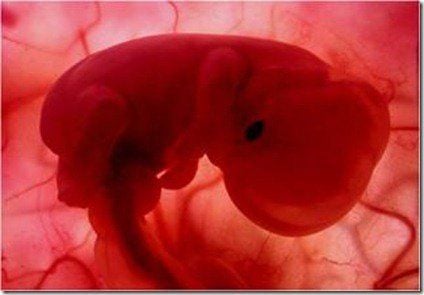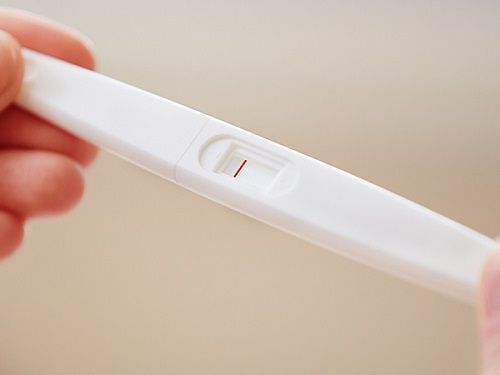This is an automatically translated article.
The article was professionally consulted by Specialist Doctor I Tran Thi Phuong Loan - Obstetrician and Gynecologist - Department of Obstetrics and Gynecology - Vinmec Phu Quoc International General HospitalPregnant women in the first 3 weeks will not notice any changes in the body, even if there is no sign of a missed period. However, women can also start using home pregnancy test strips to know the results as early as 3 weeks pregnant.
1. Changes of the body during the 3rd week of pregnancy
1.1. zygote - fertilized egg When the egg and sperm have been successfully fertilized, they officially fuse together to form a common cell - called a zygote. However, with its ultra-small size, only equivalent to the tip of a needle, the zygote now does not look like a fetus or a child. This is just a collection of about 100 cells, which are multiplying and growing rapidly. In which, the outer layer of cells will become the placenta, and the inner layer will be the embryo later on.Chromosomes from the mother and father are combining to determine the sex, hair and eye color of the fetus, even forming part of the innate personality. The zygote will travel from the fallopian tube towards the uterus, where it will stay and continue to divide exponentially over the next 9 months. It is these original cells that will make up all the organs and organs of a complete baby.
1.2. The corpus luteum and pregnancy hormones Although there are almost no changes in the first 3 weeks of pregnancy, inside their bodies there are active activities to prepare for the formation and development. of the upcoming fetus.
The corpus luteum - a structure consisting of many yellow cells that forms in the follicle after the egg has been released. The corpus luteum begins to produce the hormones progesterone and estrogen in sufficient quantities to nourish the zygote for the next 10 weeks, until the placenta appears and takes over.
About a week after fertilization, the blastocyst will implant itself in the lining of the uterus and the placenta begins to form. Over the next 6-12 days (about the 4th week of pregnancy), the cells of the placenta gradually develop and begin to produce Human Chorionic Gonadotropin (hCG) - a hormone secreted by the human placenta. HCG will continuously increase during the first 3 months of pregnancy, then gradually decrease in the second trimester. This is seen as a signal that tells the ovaries to stop making more eggs, and instead triggers the production of more progesterone and estrogen to keep the lining of the uterus from shedding, as well as helping to support fertility. placental development.
All pregnancy hormones not only play an important role during pregnancy, but also cause a series of internal and external changes in a pregnant woman's body, such as morning sickness. HCG can be found in urine and blood, which is why women take a urine pregnancy test at home and have a blood test at their first prenatal visit. However, some pregnant women in the first 3 weeks may not receive a positive result when taking a pregnancy test and need to wait another 1-2 weeks.

Cơ thể bà bầu 3 tuần đầu thay đổi như thế nào?
2. Manifestations of pregnant women in the first 3 weeks
2.1. Sharp sense of smell Sudden extreme sensitivity to scents can be a sign of your 3rd week of pregnancy. A sharper sense of smell is a very obvious effect of the hormone estrogen in pregnancy, every scent that is floating in the air around the first 3 weeks of pregnancy, whether it is very small, or fragrant or unpleasant, is released. unusually large. The woman's nose will now smell the smell of the food being cooked at the house next door, the smell of garbage on the street corner or the perfume of the person who just walked in the door.In fact, this change is not positive because it will make the symptoms of morning sickness worse. Therefore, pregnant women in the first 3 weeks should note:
Stay away from the kitchen area or street food stalls; When cooking, microwaves should be preferred because they tend to cause less odors; Open the windows in the house to let the air in; Wash clothes more often, avoid leaving a lot of dirty things in the basket; Look for soaps that are unscented or have a pleasant scent. Pregnant women from 3 weeks onwards, if they have severe morning sickness, should frankly ask family members to clean up their personal belongings after cooking or exercising in the house, choose a perfume with a light and pleasant smell. , as well as brushing your teeth after eating strong-smelling foods.
2.2. Tension in the lower abdomen Symptoms of abdominal tightness, or even mild cramping, but not accompanied by bleeding are very common, especially during the first pregnancy. The first 3 weeks pregnant do not need to be too worried because this can be a sign that everything is going as normal. This feeling is most likely caused by:
The process of embryo implantation into the uterus; Increased blood flow and thickening of the uterine lining; The uterus is growing larger; Sometimes it's just an upset stomach. Although the body is actively catching up with all the changes happening inside, pregnant women in the first 3 weeks can consult their doctor during their follow-up visits if they often feel persistent abdominal pain.
2.3. Changes in Taste: A woman's 3rd week pregnant woman's taste buds can cause most of the food they enjoy to smell similar to metal coins. This is because the taste buds on the tongue are heavily influenced by certain pregnancy hormones during the first trimester. To alleviate this symptom, pregnant women in the first 3 weeks of pregnancy can be accompanied by a main meal with some acidic foods such as:
Lemon juice; Fruit juices; Sour sweets; Dishes prepared with vinegar. In addition, cleaning your tongue every time you brush your teeth or gargle with a little salt water are also useful suggestions that you can apply.
3. Tips for pregnancy week 3
Combining iron and vitamin C Combining iron-rich foods with foods high in vitamin C will help increase the absorption of iron - a nutrient needed by pregnant women to support increased blood volume. If using cereal for breakfast, pregnant women 3 weeks should eat with some berries, including: blueberries, strawberries, mulberries and raspberries. In addition, pregnant women in the first 3 weeks of pregnancy can find vitamin C in fruits and vegetables such as kiwi, mango, strawberry, melon, bell pepper, tomato and asparagus. Meanwhile, iron is abundant in soybeans, beef, poultry and dried fruit.Choose foods rich in calcium Calcium is not only good for the mother but also helps the fetus to build and develop strong bones. This is also an essential nutrient for the health of the heart, nervous system as well as muscles. If a woman does not get the necessary amount of calcium during pregnancy, the body will automatically withdraw calcium from the mother's bones to pass on to the baby. Pregnant women in the first 3 weeks of pregnancy should consume about 1,000 milligrams of calcium-rich foods during the day, which is equivalent to 4 servings of Greek yogurt, calcium-fortified juices, cereals and pasteurized cheese daily.

Mẹ bầu nên bổ sung các loại thực phẩm giàu canxi
Home pregnancy test Today, home pregnancy tests give almost instant results with the same high accuracy and reliability as blood tests done in a medical facility. However, it can take at least a week after a missed period for the body to produce enough hCG hormone and show it on a pregnancy test. Therefore, if the pregnancy test is negative, the first 3 weeks pregnant woman can test again after a few days. Be sure to read the instructions for use carefully and make sure to keep all personal tools clean for maximum accuracy.
Doctor Tran Thi Phuong Loan was former Head of Obstetrics and Gynecology Department, An Giang Central General Hospital; Doctor treated at Hoang Anh Gia Lai University of Medicine and Pharmacy Hospital before working as an Obstetrician and Gynecologist at Vinmec Phu Quoc International General Hospital as it is now.
Please dial HOTLINE for more information or register for an appointment HERE. Download MyVinmec app to make appointments faster and to manage your bookings easily.
Reference source: webmd.com; whattoexpect.com












